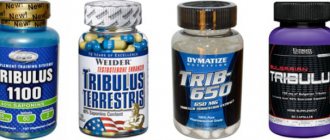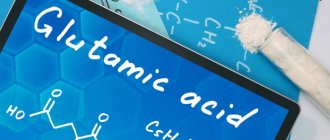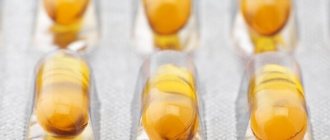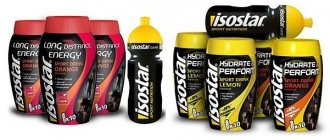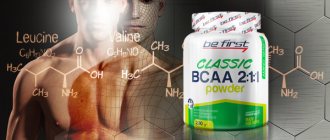Glutamine is one of twenty-two endogenous amino acids. This means that it is produced by the human body itself. It is not necessary to apply from outside to receive it. However, sometimes it happens that the human body produces too little of it, and the amount produced is not enough to fully meet the demand. Therefore, it is necessary to supplement it. What does glutamine help with? Why do you need to supplement it? Why does it work and what are its tasks in the human body?
Glutamine is important in some specific situations. We are talking about stressful situations, injuries and burns or increased physical activity. It is then that his work becomes very important for maintaining good health and condition of the body, and sometimes for restoring this health.
What kind of amino acid is this, what is L-glutamine used for, benefits and harms
This is one of the nonessential amino acids that is included in the protein molecule. Of course, in sports, the most important effect on the body will be its anabolic properties, but in addition to the creation of new cells, glutamine also contributes to:
- Improving mental processes.
- It is a powerful anti-catabolic agent.
- Promotes tissue regeneration.
- Affects the improvement of the digestion process.
- Reduces the effects of stress factors.
- Increases the synthesis of growth hormone.
- Participates in the detoxification process as an auxiliary synergist of other substances (toxins and heavy metal salts).
- Reduces the negative effects of ammonia and promotes its elimination.
- Removes the effect of overtraining.
- Reduces the accumulation of fat cells, both under the skin and in the liver.
Popular dietary supplements with glutamine
Now there are many brands on the sports nutrition market, and it is quite difficult for a beginner to make a choice on their own. To make it easier, here is a small selection of the best glutamine supplements:
Optimum Nutrition
This is one of the leaders in the sports nutrition market and a brand loved by many. Its quality is beyond doubt if it is purchased at a specialized sports nutrition store, where the possibility of selling counterfeits is excluded. Optimum Nutrition produces Optimum Nutrition Powder glutamine powder in packages of 150, 300, 600 and 1000 grams. Packs of Optimum Nutrition Caps contain 60, 120 or 240 1000 mg capsules.
Maxler
Maxler is another good sports nutrition brand with production in Germany and the USA. At the same time, its cost is significantly lower: 300 grams of powdered glutamine from Maxler costs 890 rubles, and from Optimum Nutrition – 1190 rubles.
Solgar
Solgar is a brand of premium dietary supplements that are intended not only for athletes, but also for ordinary people. They produce L-glutamine in the form of capsules: 250 pcs. 500 mg and 60 pcs. 1000 mg each.
Why do athletes need glutamine?
In sports, this amino acid plays an important anabolic role, and is also an energy booster and prevents catabolism. This amino acid will be a relevant supplement to the diet of athletes of any sport. Bodybuilders and weightlifters use glutamic acid at all stages of preparation for competitions. Take the supplement either alone or in combination with other sports nutrition.
Glutamine is a powerful anabolic agent, as it directly participates in the synthesis of growth hormone, as well as protein in muscle tissue. The anti-catabolic effect is due to the obstruction of the destruction of protein structures. After an intense workout, muscles recover faster. Another powerful effect of glutamine is to block the action of cortisol in muscle cells, which is associated with protein breakdown.
The amino acid promotes the synthesis of glycogen in the muscles and thereby provides the athlete with energy during the training process and after training.
It is important to use glutamine after training to minimize the catabolic effect.
Glutamine as a gut support
Glutamine improves metabolic processes, but not only. It also plays a very important role in protecting the intestines. First of all, it significantly improves the function, condition and restoration of intestinal cells. As a result, the intestines become much healthier, stronger and more efficient. And it does its job better.
This amino acid significantly improves the functioning of the intestinal barrier. Thanks to this, it limits the penetration of toxins outside the digestive system. Thus, it protects the entire body and helps it eliminate harmful substances. Therefore, it is indicated in cases of intestinal failure, gastric and duodenal ulcers and Crohn's disease.
In each of these conditions, glutamine has a positive effect on ulcer healing and the aforementioned intestinal leakage. Naturally, it cannot be used alone. It is neither the basis for treatment nor the only remedy. In this situation, you should consult your doctor, and glutamine can only be an addition to therapy, and not its basis or sole element. This is only a dietary supplement and does not replace a varied and balanced diet containing many ingredients. In many cases, it cannot replace classical pharmacotherapy.
The effect of L-glutamine on weight loss
Glutamine is able to reduce the accumulation of fat cells in the body, as well as provide energy to the athlete throughout the entire workout, thereby increasing performance and, accordingly, increasing the effectiveness of the workout. Thus, a person has more energy to burn calories. Glutamine can be combined with creatine and L-arginine to produce a powerful anabolic effect.
Summary
As you can see from the analysis above, glutamine is important for the immune system. It protects the human body from infections and supports it in difficult situations such as burns or injuries. It also supports a period of increased physical and mental effort.
Glutamine is a very valuable amino acid. For problems with the digestive system or metabolic problems, it can bring visible and noticeable improvement. It is a comprehensive support and at the same time very safe because this amino acid is naturally occurring and therefore does not carry any risks in the form of side effects. Even though glutamine is safe, you should still follow the manufacturer's instructions or consult your doctor when dosing it. This approach guarantees additional security.
Top 3 producers of L-glutamine
- L-Glutamine from MyProtein is a first-class product from an English manufacturer that cares about its consumers, because their products even pay attention to packaging. One serving contains 5 grams of glutamine. The manufacturer recommends mixing the amino acid with 150 grams of water. The supplement should be taken before and after training, and any time on rest days.
Order the supplement on the official website →
- Biotech 100% L-Glutamine is another high-quality product in powder form from an American sports nutrition company with production in Europe. The recommended dose of glutamine is 5 grams. You need to take one teaspoon of the supplement before and after training.
- L-Glutamine Mega Caps from Olimp is a relatively inexpensive glutamine from a manufacturer that has proven itself well since the inception of the brand. This is an encapsulated glutamic acid that should be taken one capsule (1400 mg) after training and before bed.
The combination of glutamine with sports nutrition[edit | edit code]
Glutamine combines well with many sports supplements, and the effects mutually enhance. The optimal combination: glutamine + creatine, and then protein. This bundle can include pre-workout complexes, anabolic complexes (testosterone boosters) and other supplements. Do not mix glutamine and protein together as this will reduce the rate of absorption of the former, but take them at least 30 minutes apart. Creatine and glutamine can be mixed and taken at the same time.
The Dangers of Deficiency
The concentration of glutamine in the blood exceeds that of any other amino acid (approximately 500-900 micromoles per liter of blood), and its deficiency can cause serious health consequences.
Amino acid deficiency is usually diagnosed in people with impaired metabolism. Severe injuries, burns, and surgical operations also contribute to a sharp decrease in the level of the substance. Even minor infections in the body can quickly deplete glutamine stores.
Regular deficiency of the substance can lead to disruption of the immune system. In addition, the body's ability to absorb vitamins and other nutrients will be dramatically reduced. Thus, a lack of glutamine is a total amino acid imbalance, a tendency to disease and a deficiency of many useful elements. Under such circumstances, it is worth considering taking the substance in the form of dietary supplements.
general characteristics
In the human body, glutamine is a fairly common amino acid - it makes up almost 20% of the total group of substances. More than 60% of our skeletal muscles are made up of this amino acid. And given that it contains 19% nitrogen, glutamine is the main supplier of nitrogen compounds.
Content:
- general characteristics
- Glutamine and glutamic acid: what is the difference
- Glutamine and...
- Daily norm
- The Dangers of Deficiency
- Side effects
- Food sources
Our bodies use glutamine as a building block for glycopeptides and glycoproteins, which in turn are needed to support bones and joints. It also plays a key role in regulating the synthesis of the antioxidant glutathione.
It has been proven that glutamine has a positive effect on the growth process and supports the immune system. And its ability to have a beneficial effect on muscle tissue makes it an extremely popular sports nutrition supplement among bodybuilders. Also, the property of this amino acid to retain moisture in tissues is used by bodybuilders to maintain muscle volume and relief. In addition, glutamine prevents muscle catabolism and helps the body recover faster during sleep. With its antioxidant properties, glutamine protects against free radicals and also prevents degenerative neurological diseases, particularly Alzheimer's and Parkinson's. Under conditions of increased catabolism during infectious diseases or recovery from injuries, the concentration of glutamine decreases by almost 2 times, causing severe weakness.
Food sources
The amino acid is found in many foods. But it is present in high concentrations in dairy products, meat, poultry, eggs, beans and vegetables.
Table - Food sources of amino acids
| Products | Concentration, mg/100 g |
| Soya beans | 6,05 |
| Hard cheese | 5,17 |
| Peanut | 5 |
| Lentils | 3,95 |
| Rabbit meat | 3,5 |
| Seafood (squid, mussels) | 3,1-3,2 |
| Chicken | 3,15 |
| Beef | 3,07 |
| Herring | 3 |
| Chicken eggs | 1,77 |
Contraindications and method of use
Contraindications include:
- age up to 12 years;
- pregnancy and lactation;
- kidney and liver diseases.
How to take Glutamine correctly?
The additive is available in different types and forms:
- powder;
- capsules;
- tablets of 0.25 and 0.5 g;
- 1% solution for injection in 10 ml ampoules.
To correctly calculate the dosage, it is necessary to take into account the severity and intensity of the load.
For people who do not play sports professionally, it is recommended to take 1 gram 2-3 times a day 30 minutes before meals for 4-6 months.
For those involved in bodybuilding, the dosage is increased by approximately 2 times. It is important to take into account here that for a person with less weight, a lower dosage is indicated than, under equal other conditions, for an athlete with more weight. Conventionally, you can calculate the amount of additive as follows:
- 45 kg of weight - daily intake is limited to 9 g of amino acid;
- 57 kg – the estimated daily dose is 11 g;
- 68 kg -14 g;
- 90 kg - 18 g;
- 113 kg - 23 g.
The exact dosage depends on many factors - body weight, diet, exercise, purpose of use. In any case, read the instructions carefully and follow all recommendations.
Glutamine – the king of amino acids
Home ▸ Articles ▸ Sports supplements ▸ BCAA and other amino acids ▸ Glutamine – the king of amino acids
For decades, researchers have been amazed at the variety of functions and possible applications of various amino acid drugs. Since the early eighties, fitness experts have also been playing with these building blocks, trying to gain a certain amount of muscle mass. Over time, the ratings of some amino acid preparations soared, while others, on the contrary, fell into oblivion. Glutamine has become especially popular recently, and this is no coincidence. Glutamine, so to speak, is the foundation of the amino acid kingdom.
To be precise, glutamine is not one of the “essential” amino acids. It can be synthesized in the body from several other amino acids - glutamic acid, valine and isoleucine. But during illnesses and stress (exercise with weights is also stress), some parts of the body need so much glutamine that the body cannot stand it. In such cases, glutamine preparations come to the rescue. In fact, in many European clinics glutamine is prescribed in addition to the course of treatment for patients suffering from stress or trauma (post-surgery, burns, various diseases, etc.). Research shows that this use of glutamine helps reduce muscle loss in humans, as glutamine has strong anti-catabolic effects.
Our bodies use huge amounts of glutamine throughout the day. Glutamine is especially required to maintain the proper functioning of the immune system, kidneys, pancreas, gallbladder and liver. Glutamine also has an important nitrogen transport function, removing ammonia from certain parts of the body (brain and lungs, for example) and transporting it to others (kidneys and intestines).
In addition, glutamine is used as a raw material for the powerful natural antioxidant glutathione (which is synthesized from glutamine, cysteine and glycine). Glutamine is also thought to be important for the proper uptake of muscle glycogen, although it is not entirely clear how this occurs. I don't believe this is because glutamine improves insulin release, nor is it likely that it is converted into an amino acid that can bind glucose like alanine.
In addition to all of the above, glutamine is one of the few amino acids that causes additional production of growth hormone: taking 2 grams of glutamine essentially leads to a fourfold increase in growth hormone levels. Whether this is good or bad is still unknown for sure, but it is absolutely certain that it has never harmed anyone.
I could go on and on, but to sum it up, I will just say that the body needs this amino acid in large quantities for a number of important functions, including proper muscle metabolism. Where does all this glutamine come from? Typically, the body concentrates a fairly large supply of glutamine in muscle tissue. Muscles are actually storage sites for this amino acid; in fact, 60% of the free amino acids found in muscle cells are synthesized from glutamine.
When the gut, immune system and other “glutamine sinks” cannot get enough of this amino acid from food, and the body for some reason cannot produce it, they begin to “plunder” muscle stores of glutamine, and when this happens, we end up in a state of catabolism, or breakdown of muscle tissue. The reason this happens is that glutamine keeps the cells' water supply at the proper level. As a result, when the level of glutamine in muscle cells falls, the volume of the latter decreases - catabolism is evident.
As a rule, we do everything possible to protect ourselves from this condition, so taking glutamine seems very appropriate and beneficial. But absorbing glutamine in huge quantities, with the dream that it will somehow reach the skeletal muscles, is far from the best idea. Research shows that 50 to 85% of a large oral dose of glutamine simply does not reach the bloodstream after being digested.
So what is the best way to take glutamine (and I am sure that none of the fitness athletes doubt the need for this)? Personally, I believe that consuming 2-3 grams of the drug per day is quite enough. Many of you are already doing this intuitively. Did you know that most meal replacement and multi-ingredient foods contain about two grams of glutamine per serving? Many proteins are also fortified with glutamine. This way, every time you use one of these products, you get the required amount of glutamine.
And this is good. Research scientist Anthony Almada believes that at specific times (immediately after an intense workout or just before bed), you can meet the gut and immune system's need for more glutamine through precise dosing to maintain proper levels of glutamine in muscle cells. If you supply these major organs with glutamine, they will not deplete muscle stores, and muscle cell volume and muscle protein metabolism will remain at normal levels.
This theory is the basis of a product developed by Anthony Almada in 1993 called GKG, the Glutamine Preservation System. In fact, GKG was the first sports supplement marketed as a "cell volumizer" (a term commonly used in the fitness supplement world these days). The basis of the theory of glutamine storage lies in its name: the formation and maintenance of glutamine reserves in muscle tissue.
The drug contains not only a gram of glutamine itself, but also a certain amount of its precursors, substances that are involved in the process of glutamine synthesis in the body, such as alpha-ketoglutarate (AKG), and important participants in the synthesis process, such as manganese and RNA .
Almada then developed a drug called CytoVol, which expands the spectrum of action of the GKG formula; it contains other substances that support muscle cell hydration, such as alanine (needed by muscles during intense work), glycine and inositol. Recent studies have shown that glycine combined with glutamine produces a greater muscle cell volumizing effect than glutamine alone.
During fasting (when we sleep, for example) and after eating, glutamine is released from the muscles to maintain proper blood sugar levels. Alanine can maintain glutamine levels in muscles by being converted into glucose in the blood when you restrict the number of calories you consume, such as when you are on a strict diet or simply when the gaps between meals are too long.
How much glutamine does the body need? Although it has not yet been scientifically established what exactly this number should be, there is no doubt among fitness experts and scientific experts that glutamine is important. Most of the data on the required amount of glutamine at the moment comes only from clinics, with sick people acting as experimental subjects. How much glutamine a healthy fitness professional needs for optimal muscle metabolism, improved muscle cell volume, and a healthy immune system remains to be seen.
However, my personal opinion is that if glutamine is taken in addition to a diet rich in protein and carbohydrates, then a noticeable effect will be observed at a dosage of 10 grams per day. As I said, some of this amount may come from regular meal replacement products and proteins. You can also go to a sports nutrition store and buy pure glutamine, then consume 2-3 grams of it with protein shakes or simply dilute it in water and wash it down with regular food. Personally, I take a serving immediately after training and another one before going to bed.
Another interesting detail: Some researchers believe that loading with drugs like glutamine in combination with insulin-enhancing carbohydrates for five to seven days can help increase muscle cell volume (by supersaturating glutamine stores in the cells). Thus, if you are just starting to use glutamine supplements, I would recommend taking four equal servings per day. And make sure that you have one serving at the end of your workout, and another one at bedtime.
If you haven't tried glutamine yet, give it a try. Expert opinion, scientific data and the experience of many people speak in favor of this drug.
Magazine "Body Culture"
What is it for?
Glutamine is one of the three main amino acids that directly affects muscle structure. A reasonable question may arise: why consider it separately from proteins? Let's figure it out in order. Protein, when broken down, is divided into dozens of different amino acids, including even such rare compounds as arginine.
At the same time, the amino acids that make up the protein play the most important roles in the body:
- responsible for the functioning of the thyroid gland;
- regulate the functions of the gastrointestinal tract;
- transport polyunsaturated fatty acids;
- regulate metabolism.
The abundance of protein in your diet does not mean rapid growth of muscle mass.
© nipadahong — stock.adobe.com
What should you consider when taking supplements?
Glutamine is often prescribed for stress and injury, as its amount decreases sharply at this time. This helps prevent the breakdown of proteins in the muscles, meaning it has an anti-catabolic effect.
Keep in mind that it is an unstable molecule and does not completely break down in liquids, which reduces its effectiveness when taken with supplements.
To solve this problem, other amino acids (alanine or glycine) are often added to sports nutrition or capsules to create dipeptides (two linked amino acids), which improves the stability of glutamine without side effects.
Where can I buy
Supplements for athletes can be purchased online or at a pharmacy. But pharmaceutical drugs are not cheap.
The lowest prices for glutamine are in the well-known online store iHerb. From other sellers the cost will be 30-50% higher. You can check it yourself.
There is a discount of up to 10% on iHerb using this promotional code:
AGK4375
Activate
The promotional code is activated in the cart after adding the 1st product and is valid only for the 1st order.
Strengthens the immune system and speeds up the healing process
Immune cells such as lymphocytes, macrophages and neutrophils require glutamic acid. Having it around these cells allows the white blood cells to grow.
Injury, infection, cancer treatment, and surgery weaken the immune system and deplete the body's glutamine stores. Therefore, additional intake of capsules with it helps speed up the recovery process.
4. Supports immunity to fight infections
It can increase levels of B and T lymphocytes in patients with systemic inflammatory response syndrome (a serious and life-threatening response of the body to injury, infection or burns). Capsules with 2-aminopentanamide-5-oic acid reduced inflammation and accelerated recovery in 30 patients with systemic inflammatory response syndrome.
In 22 patients, l-glutamine increased levels of T lymphocytes, cells that fight bacterial invasion, after colorectal surgery.
In another study, 45 bone marrow transplant patients who took the supplement experienced a nearly two-fold reduction in infections.
A study of 68 underweight infants found that the incidence of sepsis (a life-threatening condition in which the body attacks its own tissues in response to infection) and bacteremia (a bacterial infection of the blood) was 11% in patients given glutamine compared with 30% who did not receive it.
Promotes wound healing
It supplies the cells necessary for wound healing (macrophages, lymphocytes and connective tissue) with energy.
When tissues and immune cells are injured, they surround the wound faster if there is a sufficient amount of glutamine in the body. In rats, 2-aminopentanamide-5-oic acid levels decreased by 50% 5 days after injury.
Reducing the concentration of this amino acid stimulates muscle cells to produce more glutamine for healing wounds and other processes.
Reduces side effects after chemotherapy
Patients undergoing chemoradiotherapy for head and neck cancer typically develop mucositis (inflammation of the mucous membranes) in the mouth, larynx, and pharynx. This causes unbearable pain and discomfort.
When patients took l-glutamine, the severity of mucositis decreased along with pain.
Rats given glutamic acid supplements lost less weight when their stomachs were irradiated.
However, cancer cells use this amino acid for fuel, which is why l-glutamine is often contraindicated in cancer patients .
In any case, you should consult your doctor before using supplements.
Helps recover after surgery
Surgery reduces the amount of 2-aminopentanamide-5-oic acid in the muscles and reduces protein synthesis in them.
Patients undergoing abdominal surgery who properly took this aminocarboxylic acid lost less glutamine in their muscles compared to those who did not. Moreover, protein synthesis remained unchanged, while it decreased in the group without taking the supplement.
Daily intake a week before gastric surgery helped improve liver function and increase the amount of antioxidants during the recovery period.
Moreover, the healing process was many times faster when taking supplements with this amino acid.
8. Increases the amount of nitrogen in the body if its amount is reduced
Infections, surgery, radiation and chemotherapy reduce the amount of nitrogen in the body by breaking down proteins. Bone marrow transplant patients who receive glutamine get sick less often and recover faster because more nitrogen is retained in the body.
The same positive dynamics are observed in patients who have undergone gastric surgery.
9. Prevents the reduction of branched chain amino acids (BCAAs)
After injury or excessive muscle strain, the level of l-glutamine in the body decreases. Glucocorticoids cause muscle wasting in healthy people, which also reduces l-glutamine levels.
One study found that glucocorticoid treatment reduced glutamine levels in the body 24 hours after administration.
And this leads to a decrease in the amount of branched chain amino acids. Leucine decreased by 23%, valine by 27%, and isoleucine by 33%. Increased leucine oxidation was directly associated with decreased glutamine.
Branched-chain amino acids are essential, and their deficiency leads to decreased protein synthesis.
One study found that by maintaining blood levels of this amino acid, leucine oxidation was reduced in adults, children and infants, and in dogs with muscular dystrophy.
Possible side effects
Glutamine produces many side effects, but they are rare and often caused by contraindications. Here are a few main ones:
- tumor growth;
- risk of malignant neoplasms;
- burning and pain in the abdomen;
- dry mouth;
- diarrhea;
- allergic reactions.
According to the instructions for use, excessive consumption of glutamine leads to an increase in the concentration of other amino acids and blood acidity. And with long-term use, the natural production of this substance decreases, addiction occurs, which is why, after discontinuation of the drug, the soreness increases and muscle growth slows down.
Glutamine and glutamic acid: what is the difference
By acting on the nervous system, glutamine is able to be converted into the neurotransmitter glutamic acid, and then, if necessary, back into glutamine. But despite the similarity of names, it is important to understand the difference between these two amino acids.
Glutamine is an amino acid, the maximum concentration of which is found in the brain and spinal cord, plasma, as well as in the intercellular fluid of parts of the muscles.
This substance regulates the balance of alkali and acids, promotes the production of new cells, thereby preventing early aging. With a lack of glutamine, tissues are destroyed, and the body begins to use muscle tissue as a source of proteins.
Glutamic acid is a neurotransmitter and belongs to the non-essential class. It is responsible for the transmission of nerve impulses, affects the functioning of the central nervous system, and has psychostimulating and stimulating properties. If there is a need to support, restore physical strength, or build muscle, then glutamine should be introduced into the diet, and glutamic acid is important for mental health.
How much glutamine should you take per day?
For a person involved in bodybuilding, the daily requirement is from 4 to 8 grams of glutamine. However, the exact figure depends on the athlete's weight, height and level of physical activity. You need to calculate the norm like this: 1-2g. per kilogram of mass. This norm does not depend on the form of glutamine. Glutamine can be purchased in 2 forms:
- In tablets and capsules. It is much easier to store and use the substance in tablets. There is no need to prepare it during administration; you just need to take the tablet with still water.
- In powder form. In this form it is inconvenient to store and use it, since it must be diluted (with water, milk or something else) before use. After preparation, the drug should be drunk immediately. The powder form is more effective as it is absorbed faster.
The differences are minor, any form will help you effectively engage in bodybuilding.
Indications for use
The amino acid must be taken not only during intense physical activity, but also for the treatment of certain diseases. Taking glutamine is recommended to eliminate the following conditions and diseases:
- hormonal disorders;
- decreased immunity;
- physical exhaustion, sore throat, muscle weakness, chronic fatigue;
- exposure to stress;
- irritable bowel syndrome;
- cardiovascular diseases;
- fatty liver disease;
- wounds and other damage to the skin.
Glutamine can also be taken for alcohol or drug addiction, as the substance has an antitoxic effect and reduces cravings for addictions.
Attention! The amino acid helps restore the body, heal wounds after surgery, chemotherapy and radiation.
How to take glutamine for bodybuilding together with other supplements?
Professional athletes often combine courses of different dietary supplements, trying to achieve maximum effect. Glutamine, like most amino acids, interacts well with other sports supplements. The best effect is achieved from combined use with creatine, since glutamine increases the speed of its delivery to the places where it is used: a synergistic effect occurs.
But you need to take glutamine with protein more carefully. Protein supplements should be taken 30-40 minutes after taking the amino acid to allow it to be absorbed. Taking them together may reduce the effectiveness of glutamine or even cause stomach upset.
Top 5 Supplements in Tablets
The drugs are sorted in ascending order of price per dose.
#5 Solgar – L-glutamine
Solgar, L-Glutamine 60 Tablets
★★★★★
892 rub.
More details
The cost of 1 serving is 23 rubles. 48 kopecks
- Country: USA;
- concentration – 1000 mg;
- package volume – 60 tablets.
Dietary supplement with optimal content of active substance. The dietary supplement contains no gluten, gluten or other allergens. The manufacturer also offers economy packaging with a volume of 120 tablets.
Pros:
- the drug improves memory and concentration;
- relieves muscle fatigue;
- strengthens the immune system;
- normalizes intestinal function.
Minuses:
- No
№4 MyProtein – Amino acid L-glutamine
from 1200 ₽
Price for 1 serving – 14 rubles. 40 kopecks
- Country of origin: Great Britain;
- concentration – 1000 mg;
- package volume – 250 tablets.
MyProtein company produces dietary supplements and food products that help improve athletic performance. The package is enough for several months of daily use.
Pros:
- the supplement promotes rapid muscle mass gain;
- increases endurance;
- helps cope with depression.
Minuses:
- You need to take 3 tablets a day.
#3 Best Naturals – L-Glutamine
Best Naturals, L-Glutamine, 1000 mg, 180 Tablets
RUB 1,236
More details
The cost of 1 serving is 10 rubles. 80 kop.
- Country of origin: USA;
- concentration – 1000 mg;
- package volume – 180 tablets.
The food supplement replenishes glutamine deficiency, normalizes metabolic processes, and supports the functioning of the immune and musculoskeletal systems. The manufacturer recommends taking it together with vitamin B6.
Pros:
- Vegetarian dietary supplement;
- does not cause allergic reactions;
- increases immunity;
- helps to gain muscle mass;
- improves mental performance.
Minuses:
- No
#2 Source Naturals – L-Glutamine
Source Naturals, L-Glutamine, 500 mg, 100 Tablets
★★★★★
746 rub.
More details
Price for 1 serving – 6 rubles. 34 kopecks
- Country: USA;
- concentration – 500 mg;
- package volume – 100 tablets.
The drug contains an active free amino acid formula. It is recommended to be used for prevention and increasing physical endurance. There is also a large package of 200 tablets.
Pros:
- the product does not cause adverse reactions;
- improves brain activity;
- increases performance;
- helps with dyspeptic disorders.
Minuses:
- low concentration of glutamine in 1 tablet.
#1 Jarrow Formulas – L-Glutamine
Jarrow Formulas, L-Glutamine, 1000 mg, 100 Tablets
★★★★★
936 rub.
More details
The cost of 1 serving is 5 rubles. 96 kopecks
- Country of origin: USA;
- concentration – 1000 mg;
- package volume – 100 tablets.
The glutamine supplement contains the optimal amount of the amino acid. It can be used for prevention. The active substance quickly penetrates the blood-brain barrier (BBB), where it is converted into neurotransmitters.
Pros:
- the supplement is sold at an affordable price;
- helps with pain in muscles and joints;
- improves mood and performance.
Minuses:
- not all buyers noticed the effect.

